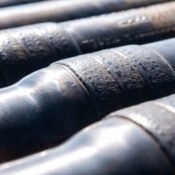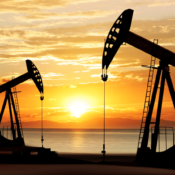19Dec

Safety First: Protecting Your Team with the Right Safety Gear for Hardfacing Operations
Hardfacing is an essential process for extending the life of downhole tools, but it’s also a high-risk operation that requires the right safety gear to protect workers from the hazards associated with welding, high temperatures, and flying debris. Ensuring that your team is equipped with the proper safety equipment is critical for preventing accidents, injuries, and downtime. In this blog, we’ll explore the various types of safety gear necessary for hardfacing operations and how to implement best practices for keeping your team safe.
The Hazards of Hardfacing:
Hardfacing involves applying high-heat welding processes that can present a variety of hazards, including:
- Heat Exposure: Welding generates intense heat, which can lead to burns and thermal injuries if protective gear is not worn.
- Flying Sparks and Debris: The hardfacing process often produces sparks, molten metal droplets, and other debris that can cause eye injuries, burns, or even respiratory problems.
- Fumes and Gases: Welding operations produce hazardous fumes and gases that can be harmful to workers' health if proper ventilation and respiratory protection aren’t in place.
- Electric Shock: Arc welding processes pose a risk of electric shock if proper precautions are not taken.
- Welding Helmets and Face Shields: A high-quality welding helmet with a darkened face shield is essential for protecting workers' eyes and face from intense light, sparks, and harmful UV radiation. Modern helmets with auto-darkening features offer increased convenience and protection, automatically adjusting the tint to protect the welder’s eyes while maintaining clarity.
- Protective Clothing: Workers should wear flame-resistant clothing, including welding jackets, gloves, and aprons, to protect against burns and sparks. Leathers and specialized flame-resistant fabrics are ideal for preventing heat-related injuries. Proper footwear, such as steel-toed boots, is also important to protect against falling debris.
- Respirators and Fume Extraction Systems: Welding generates fumes and gases that can be hazardous if inhaled. Respirators or welding masks with built-in filtration systems should be used, particularly in poorly ventilated areas. A fume extraction system that draws away harmful smoke is also highly recommended.
- Welding Gloves: Heavy-duty welding gloves made from flame-resistant materials like leather should be worn to protect workers from burns, abrasions, and sharp objects during hardfacing operations. The gloves should also allow for dexterity to ensure a secure grip on welding tools.
- Hearing Protection: In some cases, welding and hardfacing operations can generate high levels of noise, particularly when using power tools. Earplugs or earmuffs should be worn to protect workers' hearing from long-term damage.
- Eye Protection (Safety Glasses): In addition to the helmet, workers should wear safety glasses to protect their eyes from flying debris and UV radiation during preparation or cleanup stages of the hardfacing process.
- Fire Safety Equipment: Hardfacing operations can produce sparks that pose a fire risk. It’s important to have fire extinguishers and fire blankets on hand in case of emergencies. Workers should also be trained in basic fire safety procedures.
- Pre-Operation Safety Checks: Before starting any hardfacing operation, ensure that all safety equipment is in good condition and readily available. Conduct a safety briefing to remind workers of the potential risks and the necessary precautions.
- Proper Ventilation: Ensure that the workspace is well-ventilated to avoid the buildup of fumes and gases. Use exhaust fans or fume extractors to draw hazardous gases away from the work area.
- Training and Awareness: Ensure that all workers are properly trained in welding techniques, safety protocols, and emergency procedures. Regular safety drills can help keep everyone prepared in case of an accident.
All Categories
Recent Posts
admin1 Comment
The Importance of Hardfacing in Downhole Tool Longevity
admin0 Comments
How Material Selection Impacts Downhole Tool Performance
MON-SAT 8:00-9:00
+91 69 863 6420




